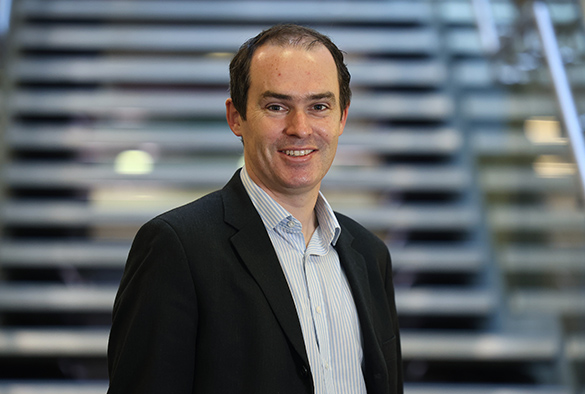New EPSRC project to redesign electrocatalytic carbon dioxide reduction
Published on

University of Liverpool researchers have been awarded £250k funding by the Engineering and Physical Sciences Research Council (EPSRC) for an ambitious research project that aims to design a new and more economically viable method to convert carbon dioxide to useful products.
The project is one of ten research projects announced today (Thursday, 31 March) by UKRI to support the development of disruptive, adventurous ideas for new materials, devices, fuels and technologies in support of the government’s ambition to achieve a net zero society by 2050.
Carbon dioxide is a waste molecule that is generated by many industries and processes. It can be converted to make energy rich fuels and products such as jet fuel, plastics, medicines but the most promising process to do this, called electrocatalytic carbon dioxide reduction, is currently too inefficient and costly. A major cause of this is that the process is carried out under conditions where most of the inputted carbon dioxide rapidly reacts with hydroxide in the device and becomes unavailable for conversion. This means that conversion yields are low and costs become high.
This new research project, led by Professor Alex Cowan, aims to assess the catalytic processes to designing new electrodes that work under acid conditions where the undesired side reaction is turned off. The project will then demonstrate these electrodes in a novel type of zero-gap bipolar membrane electrolyser to deliver novel, potentially viable, approach to carbon dioxide utilisation.
Professor Alexander Cowan, from the University of Liverpool’s Department of Chemistry and Stephenson Institute for Renewable Energy, said: “Electrocatalytic carbon dioxide reduction is one of the most promising ways to convert carbon dioxide to useful products and this project aims to improve this method.
“We will adopt the “ZeroChem” approach - if the catalyst does not work under the conditions that are required for the process to operate effectively then the catalyst needs to be redesigned. This feasibility study will assess if gas diffusion electrodes can be made which operate in strong acid. We will then demonstrate their use in a novel type of zero-gap bipolar membrane electrolyser to deliver an entirely new approach to carbon dioxide utilisation.”
Science Minister George Freeman said: “Harnessing Science, Technology and innovation is fundamental to achieving clean growth. By investing in innovative clean tech projects like those announced today we are supporting both UK research and our global clean tech sector.”
EPSRC Executive Chair Professor Dame Lynn Gladden said: “The projects announced today offer a variety of radical approaches to achieving a sustainable, cost-effective and fair transition to net zero and net negative greenhouse gas emissions.
“Harnessing and building on the latest developments in chemical engineering, materials science and chemistry, these ideas could help to halt the climate crisis and deliver sustainable, long-term growth.”
The project `Zero-Chem: Zerogap bipolar membrane electrolyser for CO2 reduction to chemicals & fuels’ is supported with a grant of £250,000 by EPSRC.